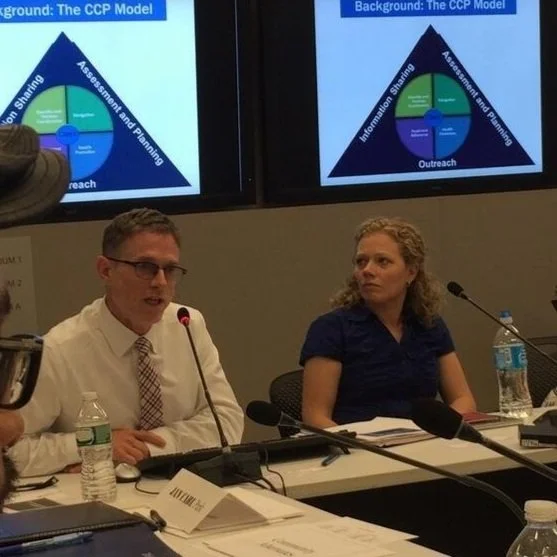Research Projects
I am a global population health scholar.
I use quantitative, qualitative, and mixed methods approaches and apply a critical theoretical lens to examine health disparities for two intersecting areas of health—sexual and reproductive health and chronic care—in low-resource settings globally.
I produce and disseminate research that is relevant and accessible to social policy makers and practitioners .
Education and Health Intersections
My research examines how and why education-health associations do or do not persist for different health behaviors and outcomes in diverse settings globally.
Examples
Chamberlin, S. Educational attainment and chronic HIV treatment adherence in southern and eastern Africa. Journal of Health and Social Behavior. [under review]
Chamberlin, S., Mphande, M., Phiri, K., Kalande, P., & Dovel, K. ‘You don’t need schooling—just take the pills and don’t stop.’: A qualitative assessment of the pathways between formal education and chronic HIV care in southern and eastern Africa. Social Science and Medicine. [under review]
How Life Circumstances Influence Health Decisions
My research assesses how individuals’ life circumstances and experiences—including the more mundane and often over-looked tasks of daily life—may powerfully influence their health choices.
Examples
Chamberlin, S., Njerenga, S, Smith-Greenaway, E., & Yeatman, S. (2022). Women’s life experiences and changing reports of pregnancy planning in Malawi: A qualitative study. Maternal and Child Health Journal, 26(8), 1719-1726.
Chamberlin, S., Mphande, M., Phiri, K., Kalande, P., & Dovel, K. (2021). How HIV clients find their way back to the ART clinic: A qualitative study of disengagement and re-engagement with HIV care in malawi. AIDS and Behavior, 1-12.
Gender and Age Dimensions of Health Care
In response to longstanding gender and age inequities in sub-Saharan Africa, questions about the influence of gender norms, age, and cohort differences on people’s health and education permeate my research.
Examples
Vilakati, B.P., Chamberlin, S., & Yeatman, S. (2023). Men’s endorsement of intimate partner violence and HIV testing behavior across sub-Saharan Africa. AIDS and Behavior, 27(2), 454-461.
Coursey. K., Phiri, K., Choko, A., Kalande, P., Chamberlin, S., Hubbard, J., Hoffman, R., Coates, T.J., Dovel, K. (2022). Understanding the unique barriers and facilitators that affect men’s initiation and retention in HIV care: A qualitative study to inform interventions for men across the treatment cascade in Malawi. AIDS and Behavior, 1-10.
Yeatman, S., Chamberlin, S., & Dovel, K. (2018). Women's (health) work: A population-based, cross-sectional study of gender differences in time spent seeking health care in Malawi. PLoS One, 13(12), e0209586.
Chamberlin, S. Educational associations with HIV testing and diagnosis in southern and easter Africa: Differences by age. [In-progress]
National, Community, and Family Context
I examine how resources are shared among family and community members in ways that promote health. In my current and future research considers educational attainment as a form of social capital.
Examples
Chamberlin, S. Pauline, L. & Krueger, P. Social learning and health knowledge in Uganda: Multi-level relationships among community and individual education and sexual and reproductive health knowledge. Population Research and Policy Review. [Under review]
CHORDS: Studying the HIV Care Coordination Project
I served as the lead analyst and co-investigator on a federally funded project to examine the effectiveness of a novel, patient-centered intervention to coordinate HIV patient’s care and improve self management.
Examples
Nash, D., Robertson, M. M., Penrose, K., Chamberlin, S., Robbins, R. S., Braunstein, S. L., ... & Irvine, M. K. (2018). Short-term effectiveness of HIV care coordination among persons with recent HIV diagnosis or history of poor HIV outcomes. PloS one, 13(9), e0204017.
Robertson, M. M., Waldron, L., Robbins, R. S., Chamberlin, S., Penrose, K., Levin, B., ... & Nash, D. (2018). Using registry data to construct a comparison group for programmatic effectiveness evaluation: the New York City HIV Care Coordination Program. American Journal of Epidemiology, 187(9), 1980-1989.
Irvine, M. K., Chamberlin, S. A., Robbins, R. S., Kulkarni, S. G., Robertson, M. M., & Nash, D. (2017). Come as you are: improving care engagement and viral load suppression among HIV care coordination clients with lower mental health functioning, unstable housing, and hard drug use. AIDS and Behavior, 21(6), 1572-1579.
Irvine, M. K., Chamberlin, S. A., Robbins, R. S., Myers, J. E., Braunstein, S. L., Mitts, B. J., ... & Nash, D. (2015). Improvements in HIV care engagement and viral load suppression following enrollment in a comprehensive HIV care coordination program. Clinical Infectious Diseases, 60(2), 298-310.
(If you cannot access a publication due to a pay wall, please contact me.)


